I used to think I was a plotter. Or maybe I just wanted to be a plotter since it appealed to my control freak side. The idea of sitting down to write with a thoroughly plotted outline at my fingertips enthralled me. I imagined that marvelous document, each chapter broken down into detailed scene-by-scene action, emotion, and descriptions, with character goals and conflicts spelled out in perfect clarity. Writing would be a snap, I thought.
Then I tried it. And failed. Miserably.
I spent months creating that brilliant outline for one of my early books (a Scottish historical that will never see the light of day). But at the first critical turning point in the story, all that meticulous planning fell apart. The hero, who had come roaring to life in the first few chapters, simply refused to react to that pivotal moment the way I (and my beautiful outline) required him to. I could have forced him, of course. And he and anyone who read the book would have hated me for it. So I didn't. I let him react the way he needed to, which sent the story spinning in a direction I'd never foreseen. And all the meticulous planning I'd done from that point forward had to be scrapped.
So, I tried again, carefully plotting the rest of the story from that point on, convinced it would work now that I understood the hero better. Wrong. Within a few chapters, he was glaring at me, arms crossed, a mulish set to his chiseled jaw. No way in hell was he doing what I'd intended. Again.
I'd love to say that after two failures I'd learned my lesson. Nope. To paraphrase one of my favorite fictional characters (Janet Evanovich's Stephanie Plum), I try never to make the same mistake more than two or three times. Eventually, I figured it out. For me, traveling through a story is a lot like traveling by car along roads I've never visited before. Yes, I can grab a map and plan the route ahead of time, in detail, but all I'm doing is guessing the best way to go. We've all done it--chosen a route that appears to be quick, or short, or interesting, only to find the reality anything but. That 'straight shot' through the city has us caught in traffic so thick we haven't moved for an hour or that 'short cut' between two highways turns out to be little more than a track through the mountains where we can hardly tell the roads from the driveways.
Planning the trip ahead of time is all well and fine, but it's not until I get into the middle of it that I'm able to see where I really want to go.
I still plot, because my stories are too complicated to simply dive into without any plan. But my plotting these days looks more like a trip itinerary that reads: Atlanta to Cincinnati to Denver to Albuquerque. The highlights only. I refuse to plan the details of how I'll get from Cincinnati to Denver until I reach Cincinnati. At that point, I'll look at the situation (how much time I have, how much money, what the weather looks like, and how the traffic reports are stacking up), and make my decisions based on up-to-the-minute data. And even then, I'm okay with things changing. If a road looks good, I'll take it. If not, I won't. No commitments. No meticulous pre-planning. And if it starts to make more sense to switch Albuquerque with Denver, that's okay, too.
My current go-with-the-flow approach to storytelling allows my stories to develop and grow as they need to. And it gives my characters the freedom to be true to themselves, to act and react as they must. I find that this approach makes the writing far more fun, even if I don't always feel in control. Like life itself, I never quite know what the next day, or the next chapter, will bring.
skip to main |
skip to sidebar

Speculative Fiction (Fantasy/Thriller/Sci-Fi/Urban Fantasy) for adults and teens.
A group of best-selling authors provide news, reviews and interviews from the darker, more speculative side of fiction.
Who We Are

Follow Us On Twitter!
Blog Archive
-
▼
2010
(155)
-
▼
August
(21)
- “Releasing” the Book
- Where would you go?
- Killing 'em Softly - or Not
- Running away from bad guys
- Words to Die By
- The Supernatural Stepback
- How Far Is Too Far???
- What I should have said
- Celebrating Australia and Worldcon
- Ahh, those hot, sexy guys between the covers.
- Jane and the Very Damned, A Contest
- Forbidden Fruit
- Writing the Story -- Just a trip on the open road
- The Lighter Side of Paranormal
- Signed Goodies from the Underground!
- fun at san diego comic-con international!
- In the Beginning...
- Siblings
- Book Porn
- Welcome to the world, little bookie
- All About the Characters
-
▼
August
(21)

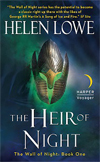
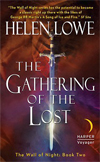
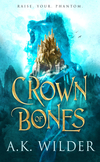
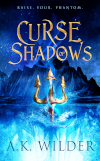
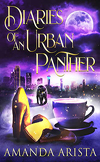
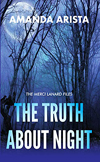

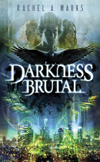
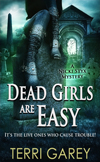
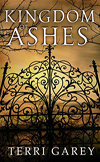
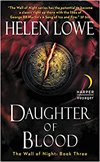
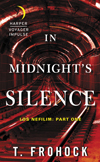
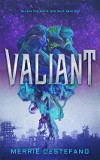
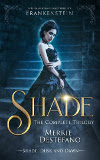
15 comments:
Apparently Kafka used to plot his books out paragraph by paragraph--which is kind of scary for a more organic, evolutionary style of writer like myself. Although I find I always know the basic story arc and start and end points rarely change. But within that ...
Authors talk about how their characters wouldn't do this or that and I find that so strange . It just doesn't make sense that an author can't make their characters do what they want. Guess that is *you are the author and I am not! .
I dont know how authors do it, write a book, make it coherent lol. I tried and let me just say it was laugh fest 3000! I can only hope that all authors are happy with what they end up with and that us, the fans love it even more.
Want to check out my reviews http://ismellsheep.blogspot.com
look forward to making new friends
I love it when authors talk about their characters as if they controlled the story instead of the other way around. I do get it... sometimes it happens that way in a painting. It never comes out the way you imagine, you just hope it comes out better than you imagine.
I also have to say... I probably could get you around Denver if you don't want to drive through the city. lol
LOL. Here's the thing about characters controlling the story. When I write, I'm inside the character's head, inside his or her skin. I'm seeing the story through his/her eyes and living it through his/her emotions. So what really happens when I say that a character refuses to cooperate, is that at some point I realize that if I were that character (and at that moment, I am), I wouldn't do what I (as the author) had originally planned. Does that make sense? Maybe as the author I'd thought, "Oh, she'll see the house on fire and run inside to save the day." Except, when I get to that moment in the story, I'm sitting in the car, in the character's skin, with a working cell phone in my hand. Why would I run into the burning house when I can call 911 and have them send a fire truck? That's a simplistic example since, as the author I can simply make sure that cell phone isn't working. But I hope it illustrates the point. It's all a matter of making certain that the character's choices and actions are well motivated and consistent with who they are. That they don't act outside of character or make stupid decisions simply to further my plot. And if I'm tempted to make them do it anyway? Yeah, in my head I definitely see them glaring at me, muttering, "You've got to be kidding."
I totally get that. I love writing by the seat of my pants. I either write for class, my brother, or just for myself (though I do have two incomplete stories on FanFiction, they were for fun).
In High School Creative Writing, I had so much trouble plotting out my story in the way the teacher wanted it. I would instead write the story and then fill in the blanks on the plot sheet. He would get really mad at me and said I was doing it wrong. My College Creative Writing teach was a little more relaxed. She understood that we all write in different ways, though she still needed that darn plot sheet. :(
Ugh. Plot sheets. You don't necessarily get away from them even after you're published. Many editors want to see a synopsis of the book (a brief outline of the WHOLE thing) before you write it. Which means plotting it ahead of time. My final stories never look anything like the synopses. Fortunately, most of my editors don't require them unless I'm pitching a brand new series/project.
Plotting....I have *forced* myself to sit down and write an outline, and it was a truly heinous experience. Like having your teeth pulled. With pliers. And no pain relief. *shudders at the memory*
And on the days I didn't want to write and had to force my butt into that chair in front of the computer, it was great. There was my outline, all ready to go, and I knew exactly what I had to write and where the story was going.
But on the days where it came easy, and the words were just flowing, it was hell. Because knowing exactly where the story was going sucked all the joy out of the process.
For me, part of the joy of writing is having your characters balk and want to "do their own thing", be true to themselves, in other words. So although I've taught myself to plot, I'm still pretty much a seat-of-the-pants writer at heart.
Unfortunately, that means I can't write an accurate synopsis of the story till after it's written. Mmm. The suckiness of writing synopses... let's not go there! LOL
Great post, Pamela. I love the analogy of the road trip. That's exactly how it is for me, too *VBG*
I just finished my first draft tonight, and while I had a good sense (overall) of where the story was going, I *could not* write a detailed outline.
Hell, for a good 50%, I had no outline. But then, one day while I was bored and sitting in a college class--the Professor's voice was too loud, so I couldn't write--I sketched out a brief chapter-by-chapter outline. It helped on the days where working on the WIP was like getting my teeth pulled. And on the days I was inspired? I completely forgot about it :)
It's kind of funny how authors say that their characters control the direction the story takes. Before working on my own book, I thought that was crazy talk. Now... I definitely think it's true!
I get how once you are "in character" you would make certain decisions you might not have made earlier. I guess I just don't know what it is like to "become" a character while writing it. I have had great ideas for a story, but the character doesn't grab hold and want to give their story. Again, why I read and you write .
This is the exact same process I go through, Pam! (No big surprise there, is there?) :-) I start out with an over-arching idea of the plot, but no clear direction of how I'm going to get from A to Z, but knowing I'll get there. I start by getting to know my characters. If forced to (ugh), I can put together a synopsis, knowing that my finished story will be very, very different in the end. My editor doesn't seem to mind, which is great, because if I felt I had to stick to a pre-concieved plot I'd be too stressed to write the story the way it needed to unfold!
Characters are so key to the story - you write them, you get to know them, and yes, you get to the point that you can't have them do anything contrary to the personality you've created for them. So while you're thinking about what they WOULD do, BAM there's your next scene. :-)
Great post!
This is much like the way I write, Pam. I wish, like you, that I could plot things out ahead of time...but I simply can't.
How can I until I experience what the characters do?
I'm very fortunate to have an editor(s) who understand that when I turn in a synopsis or proposal for what I'm going to do, that it's either often very vague and high level, and always, ALWAYS subject to change.
For me, I liken writing a book to like reading a book. For me it's the same sort of experience...I'm writing it as the first reader, and therefore I have no real idea what's going to happen.
I will say that if I could plot, I'd probably be much more efficient. If only there were a pill for plotting....!
I LOVE the road trip--And the whole time you were explaining, I was thinking in my head "boy, she's lucky I'm not driving, or navigating!!!" We would get there eventually...probably...and I'm not saying it wouldn't be interesting...just I hope you're not on a deadline ;)
This is an AWESOME post--I love hearing all the background!!!--I'm curious, when you decide to take a detour, what to you do with the rest of your trip-plan??? does it just get discarded, or do set it aside to go visit later???
I am so not a fiction writer. So I find books to be infinitely magical. But, as a painter I 'get" the idea of a character writing itself, sometimes paintings paint themselves - they are usually the good ones.
New follower through someone on a hop. Fangs, Wands and Fairy Dust
steph@fangswandsandfairydust.com
I've not done a lot of planning, but I'm considering giving it a go for a future project - will be interesting to see if it works or not.
Post a Comment